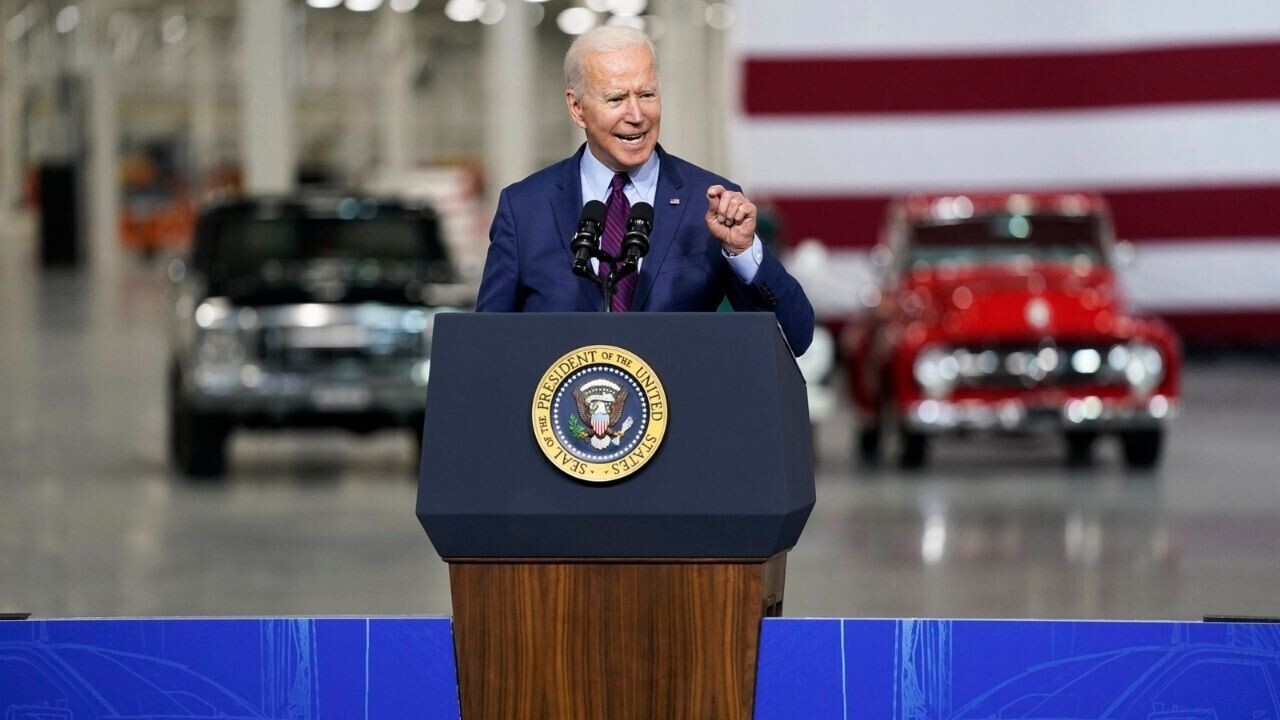
Did you know SHIFT is taking the stage this fall? Together with an amazing line-up of experts, we will explore the future of mobility during TNW Conference 2021. Secure your ticket now!
On Friday, US Democratic lawmakers proposed a new bill increasing the current $7,500 tax creditfor electric vehicles. And while this seems like a very promising step, in reality the credit expansion favors only particular automakers.
The base amount remains unchanged at $4,000, with an extra $3,500 if the EV battery has a minimum of 40kWh — totalling the present 7,500 dollar grants.
The bill now suggests that consumers can claim an added $4,500 for vehicles assembled at a domestic unionized plant. In contrast, EVs that are American-made, but not union-built, qualify for a mere $500 extra.
Unionization: who wins or loses
To put it a nutshell, this proposal strongly favors the so-called “Big Three,” namely GM, Ford, and the Stellantis Group, whose unionized workplaces are represented by the United Auto Workers (UAW).
On the opposite side stand foreign automakers operating in the States and American Tesla as well. They don’t have unions representing their autoworkers, and in fact many of them have even battled against a unionized workplace and UAW takeovers.
For instance, workers at Volkswagen’s assembly plant in Chattanooga, Tennessee, voted against union representation in 2019, and Nissan workers also declined to unionize in Canton, Mississippi, in 2017.
Honda’s and Toyota’s objection
Among the affected companies, Honda and Toyota have been the first to express their opposition, Reuters reports.
Toyota said in a statement that the plan discriminates “against American autoworkers based on their choice not to unionize.”
Likewise, Honda called the bill “unfair” and stated the following:
[It] discriminates among EVs made by hard-working American autoworkers based simply on whether they belong to a union. […] The Honda production associates in Alabama, Indiana, and Ohio who will build our EVs deserve fair and equal treatment by the Congress.”
Is the bill unfair?
The answer is rather complicated and there are two sides of the story.
1. The bill can be unjust.
While it would make perfect sense for the extra credit to be given to American-made EVs as a domestic economic stimulus, unionization is a sensitive and personal matter.
After all, it’s workers who decide whether to form a union — not buyers, not automakers, and certainly not the Congress.
In fact, union participation isn’t such a popular choice and numbers have been plummeting for the past two decades. In 2020, for instance, the union membership rate was at 10.8% — a 9.3% drop since 1983. This means that unionized workers make up only 1 in 10 employees.
At the same time, no one (including non-unionized workers, automakers, and consumers) should be punished because employees at an auto plant decided against forming a union.
The maximum $12,000 credit tax gives a stronger edge to EVs produced by the Big Three, which is likely to affect sales and, therefore, jobs for the other automakers.
In the case of consumers too, the bill incorporates a form of inequality. Why should someone buying a Ford EV benefit from the extra $4,500, while someone purchasing a Honda shouldn’t?
2. The bill can provide long-term benefits.
Since assuming office, Joe Biden may have been the most overtly pro-union president over the past seventy years, aiming to reverse the negative union trend.
Biden has put unions at the center of his policy, viewing them as an opportunity to rebuild middle-class jobs and to address climate change as well.
However, pushing the labor movement into the emerging green energy industry is bound to bring about controversial views.
On the one hand, unions provide a better choice for employees with benefits including higher and steady wages, stronger pension and health insurance plans, and the ability to voice concerns without the fear of retaliation.
On the other hand, expanding union membership among autoworkers would increase wages, which in turn would mean higher production costs for automakers.
Apart from the economic blow to the companies, increased production costs will also push up the cost of renewable energy, slowing down the effort to replace fossil fuels, some economists warn.
Administration officials, however, believe that the transition to green energy will be politically sustainable only if workers see jobs in the new economy delivering wages and benefits comparable with those in older, unionized sectors.
Politics aside, the latest poll by Gallup, shows now a more positive union reception than at any point in nearly two decades, with 63% of respondents saying that they approve of labor unions.
So, yes, if we examine things under this light the bill can be good in the long term, and has the potential to help the energy industry develop as a unionized, high-wage sector, perhaps similar to the way automobile manufacturing was in an earlier era.
The bill is yet to be voted
On Tuesday, the House Ways and Means Committee will vote on the proposal, which is expected to face opposition in the Senate, being evenly divided 50-50 between Republicans and Democrats.
Do EVs excite your electrons? Do ebikes get your wheels spinning? Do self-driving cars get you all charged up?
Then you need the weekly SHIFT newsletter in your life. Click here to sign up.
Get the TNW newsletter
Get the most important tech news in your inbox each week.




